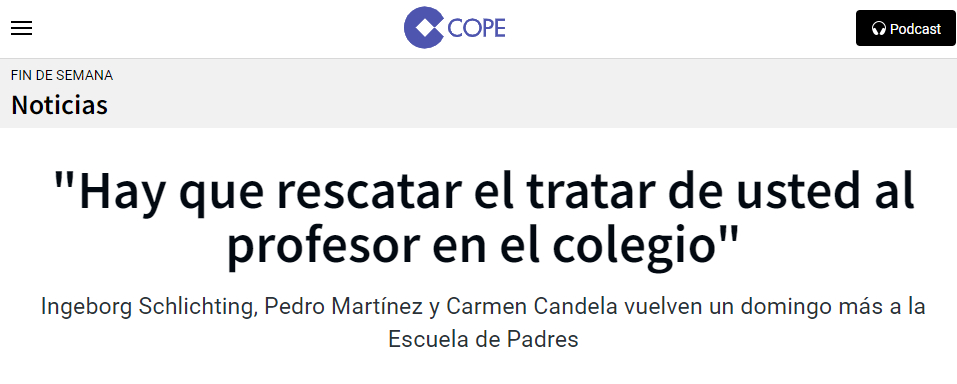The first rugby match ever played in Spain reportedly took place in 1911 in the Galician city of La Coruña in the northwest of the country, when crewmembers from two British ships docked at the port played each other in a Gloucester vs Liverpool face-off.
That same year, the first Spanish rugby team – Club Deportivo Español – played French side Patrie in Barcelona.
Rugby’s early beginnings in Spain seemed to be following in the footsteps of football, which was also brought over by British workers stationed in Spain in the late 1800s.
READ ALSO: The Scottish roots of Spain’s oldest football club
In 1923, Spain’s Rugby Federation (FER) was established, which led to the first rugby tournament held in the country in 1925, el Campeonato de España de Rugby.
But as balonpié (the Spanish name football goes by) began to be played in every corner of Spain, and Real Madrid consolidated itself as the best football club in Europe in the 1950s, rugby remained a minority sport throughout most of the 20th century.
Nowadays it can’t claim to be among the top five favourite sports of Spaniards, with basketball, tennis, motor sports, cycling, athletics and even handball all having bigger followings.
Why did rugby never become a popular sport in Spain as it did in neighbouring France?
“I don’t know why rugby never took off in Spain because Spaniards love team sports and rugby is played in certain parts of the country such as Valladolid, Madrid, Barcelona, Guipúzcoa and Seville,” Spanish-English journalist John Carlin told sports daily AS back in 2010.
“Perhaps it’s because Spain is a country where it’s very hot and the pitches are hard, something unsuitable for the big blows which take place in rugby.”
Carlos Bardem, brother of Hollywood actor Javier, who also played for Spain’s national youth rugby team in the 80s, agrees with Carlin’s statement regarding the fields.
“The main problem when I played was the fields, which were mostly gravel. Going in to tackle or being knocked down on a dirt field was something that dissuaded people and it was difficult to create a youth base.

For Manuel Moriche Mostajo, a former Spanish rugby union player and commentator, “a lack of support from the State” as well as rugby not being played at school level, mean that it’s a sport that survives in Spain “because there’s a handful of loonies who play it and break their backs for it”.
Other reasons that have been given by rugby lovers and sports journalists for Spanish rugby not getting the attention it deserves include the lack of coverage it receives on TV in Spain, Spaniards’ obsession with football and even the fact that the average Spaniard isn’t tall and tends to be slim, traits that aren’t ideal for such a physical sport.
And then there’s the money, or lack thereof, which prevent Spanish rugby from taking the leap from amateur level to professionalism.
Alfonso Mandado, president of Spain’s Rugby Federation between 2001 and 2012, said during his tenure that “the only formula for players to be able to dedicate themselves entirely to rugby, above their jobs or studies, is money”.
“We lack sponsors at national and at club level. And also more attention from the media, the showcase to attract sponsors.”
This hasn’t prevented Spain from gradually progressing up the ranks into the second European tier – what’s known as Six Nations B – alongside countries such as Portugal, Georgia, Russia, the Netherlands and Romania.
In fact, Spain has qualified for the last two Rugby World Cups.
However, on both occasions they’ve been disqualified by World Rugby before the tournaments began for knowingly fielding foreign-born players who had not spent enough time in Spain to qualify for citizenship, a decision which discredits the federation rather than the players.
It was referred to in the Spanish press as “the day Spanish rugby hit rock bottom” or “Spain keeps stepping on the same rake”.
Spain’s now ex-coach Santiago Santos told El Mundo “some cheats have dashed the hopes of Spanish rugby”, frustrated about the fact that the Spanish Lions (as they are nicknamed) had beaten teams like Portugal or Uruguay who did qualify for the 2023 RWC.
Logically, the head of the Spanish Rugby Federation at the time, Alfonso Feijóo, resigned.

This avoidable sporting gaffe also reflects how the REF has tried to fast-track Spain’s road to rugby recognition by ‘poaching’ players from abroad – for the most part French-born and developed players with Spanish heritage – something which isn’t necessarily harmful for growing a sport like rugby in Spain, if done according to the rules.
Had Spain squared up against the likes of the All Blacks, the Wallabies, the Springboks or the Pumas at the 2023 tournament in Paris, there is no doubt that more young Spaniards would have tuned in, learnt more about the game and perhaps decided to try it for themselves.
Despite the latest major setback, there are signs the sport is growing more popular among Spaniards and that the quality of play is improving.
The national side has been ranked as high as 15th in the world, their main club league the División de Honor is more competitive, and they’ve even played at Atlético de Madrid’s Wanda Metropolitano stadium.
As the 2023 Rugby World Cup draws to a close, Los Leones have already set their sights on the next tournament that’ll take place in Australia in 2027, and which will most likely include 24 teams rather than the current 20, increasing Spain’s chances of qualifying for their second RWC (their only qualification was in 1999).
At club level, the REF has decided its efforts will be focused on transforming the División de Honor from an amateur to a professional competition where players can make a living from the game alone, something that isn’t currently the case.
With an estimated 12,000 Spanish children under 12 now playing rugby thanks to campaigns that are promoting the sport, REF’s hope is that they’ll be able to ‘Spanishize’ their top league in the coming years, as the División de Honor is currently made up mostly of Argentinian players.
The only way is up now for Spanish rugby.




 Please whitelist us to continue reading.
Please whitelist us to continue reading.
Member comments